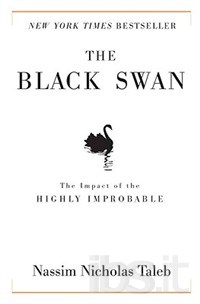Black Swans and MOOC History

Dave Cormier wrote last December that one of the "black swans" for 2012 in education would be if:
"MIT accredits MOOCs - MIT seeing Stanford pulling ahead in the free openness sweepstakes, decides that it will work to provide accreditation for open online courses. They themselves are safe in the knowledge that people will still come to MIT to work with the people/resources they have there, but they’ve decided that they are going to hire 10K tutors to evaluate people in the new MOOCs they plan to launch this year. 1 million students, 10000 tutors. What would that do?"
It seems that Cormier coined the term “MOOC” back in 2008. But this year seems to be the "year of the MOOC" and most the creation myth press has gone to Sebastian Thrun and Stanford and MIT and Udacity and Coursera. (Audrey Watters put together a nice timeline of this year's MOOC history.) Less attention has gone to earlier experimenters like George Siemens, Stephen Downes, Alec Couros, David Wiley and others.
We could argue the origin of courses like MOOCs occurring before the acronym came into usage. Vance Stevens believes we had MOOCs before 2008 and points to http://study.com which offered language lessons to anyone and which spawned Writing for Webheads in 1998.
Some of those earlier MOOCs were not as "massive" as this year's attention-grabbers. Downes and Siemens (University of Manitoba) offered a class on "Connectivism and Connective Knowledge” in 2008 that had about 20 regular tuition-paying students and 2300 plus who signed up for a free and open online version. The 2012 MOOCs are talking 150,000-400,000 users. It is hard for me to call them students since many who register never complete work or finish the course. Still, those are massive enrollments and even if "only" 10,000 finish a course, it's something we haven't seen before.
Back to that black swan... Students, universities and employers will really pay attention as we move into having these massive courses offered in a format where the assessment can be done that justifies "credit" of some kind. If it turns out to be tuition-paying credits from an established college, I would not be surprised. If it also includes tuition-paying credits from non-traditional course providers, I would not be shocked. If it includes no-cost credits from an established college for a course from a non-traditional provider, I would be surprised. Maybe even shocked.
Comments
No comments